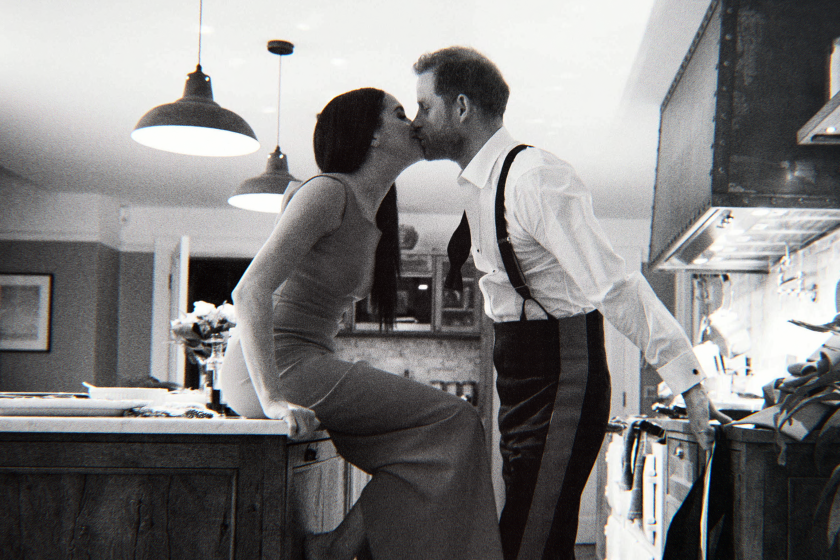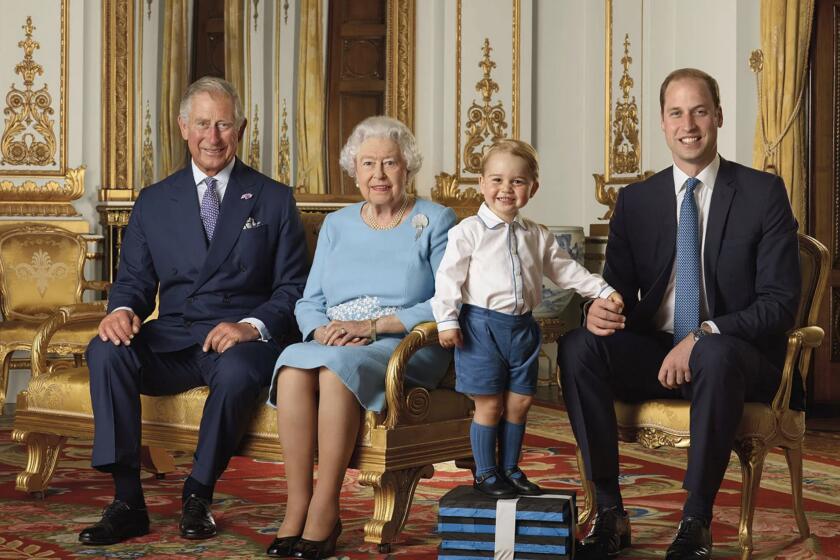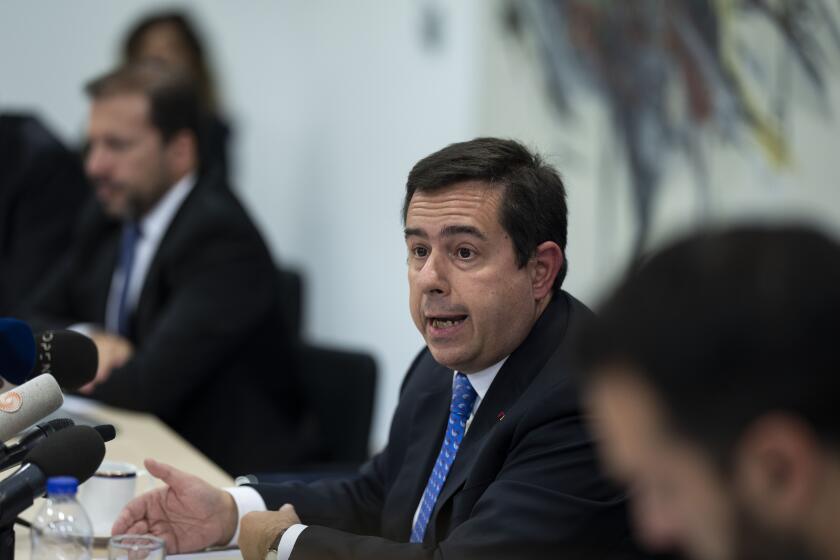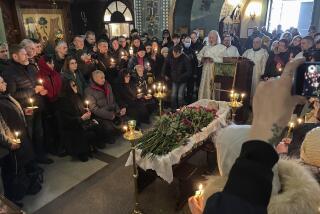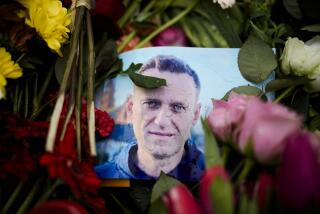Greece’s former king, who died this week at 82, to be buried as a private citizen

- Share via
ATHENS, Greece — Constantine, the former and last king of Greece, will be buried as a private citizen in Tatoi, the former summer residence of Greece’s royals and the place where his parents and ancestors are buried, the government said Wednesday.
A controversial figure in Greek history, the former King Constantine II died in a hospital late Tuesday at the age of 82. Greece’s monarchy was definitively abolished in a referendum in 1974, and Constantine spent decades in exile before settling in his home country once more in his waning years.
Decisions on his funeral were announced by the office of Prime Minister Kyriakos Mitsotakis, who chaired a Wednesday morning ministerial meeting to discuss the details. The date and location of the funeral service were not immediately determined and will be decided on in collaboration with the former king’s family, the prime minister’s office said.
The government will be represented at the funeral by the culture minister, while “all protocol procedures will be followed for dignitaries from abroad who will attend the funeral,” the announcement said.
Few people in Greece have any nostalgia for the former royal family, but other European royals, many of whom are related to Constantine, are likely to attend his funeral.
His older sister is Sophia, wife of former King Juan Carlos I of Spain, while the Greek-born Prince Philip, the late husband of Britain’s late Queen Elizabeth II, was an uncle. Constantine was one of the godparents of Prince William, the heir to the British throne.
With a controversial onslaught of public disclosure, Harry and Meghan have seized the means of production from a multibillion-dollar royal-watch industry.
The family, which had ruled Greece from 1863 apart from a 12-year republican interlude during 1922-1935, was descended from Prince Christian, later King Christian IX of Denmark, of the House of Schleswig-Holstein-Sonderburg-Glücksburg branch of the Danish ruling family.
Constantine’s wife, Anne-Marie, is the younger sister of Denmark’s Queen Margrethe. In a statement, the royal palace in Copenhagen said it was “with great sadness” that the queen had learned of Constantine’s death.
“The royal family’s thoughts are currently with H.M. Queen Anne-Marie and the entire Greek family,” the Danish palace said.
An Olympic sailing gold medalist, Constantine was hugely popular when he acceded to the throne in 1964 at the age of 23, but much of that support rapidly waned with his active involvement in the machinations that brought down the elected government of Prime Minister George Papandreou.
Barring tragedy or revolution, Britain is set to have a man instead of a woman on the throne for the next 75 years at least.
The episode involved the defection of several lawmakers from the ruling party, destabilized the constitutional order and led to a military coup in 1967. Constantine eventually clashed with the military rulers and was forced into exile.
When the dictatorship collapsed in July 1974, Constantine was eager to return to Greece but was advised against it by veteran politician Constantine Karamanlis, who returned from exile to head a civilian government.
After his triumphal win in November elections, Karamanlis called for a plebiscite on the monarchy. Constantine was not allowed in the country to campaign, but the result was unambiguous and widely accepted, with 69.2% of the votes in favor of a republic.
Until his final days, Constantine, while accepting that Greece was now a republic, continued to style himself King of Greece and his children as princes and princesses, even though Greece no longer recognized titles of nobility.
Greece’s migration minister says refugees recognized by individual EU nations should be allowed to live anywhere in the bloc.
For most of his years in exile he lived in London and was said to be especially close to his second cousin, Charles, now King Charles III.
“The eventful course of former King Constantine marked and was marked by turbulent times in the country’s modern history,” Mitsotakis said in a statement. “By wounds that were however healed by the choices, the free conscience and the maturity of our people. But also by his own discreet, it is true, stance throughout the post-dictatorship years.”
Constantine’s death marked the “formal epilogue of a chapter that had definitively closed with the 1974 referendum,” Mitsotakis said, extending his condolences to the former king’s family. History, he said, “will judge the Constantine of public life fairly and strictly. Because the person Constantine is already accompanied by sadness and respect in the face of the loss of life itself.”
While it was 14 years before Constantine returned to his country, briefly, to bury his mother, Queen Frederica, in 1981, he visited more often thereafter and, from 2010, made his home in Greece.
In Greece, a program that grants wealthy foreign investors Greek citizenship — and by extension European Union citizenship — spawns a growth industry.
There were continued disputes: In 1994, the then-socialist government stripped him of his nationality and expropriated what remained of the royal family’s property. Constantine sued at the European Court of Human Rights and was awarded 12 million euros (about $13 million at today’s exchange rates) in 2002, a fraction of the 500 million euros ($535 million) he had sought.
Along with his wife, he is survived by five children, Alexia, Pavlos, Nikolaos, Theodora and Philippos, and nine grandchildren.
More to Read
Sign up for Essential California
The most important California stories and recommendations in your inbox every morning.
You may occasionally receive promotional content from the Los Angeles Times.
